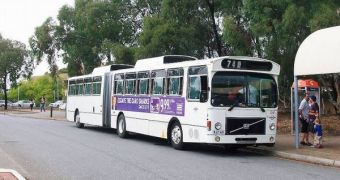People who often use public transport to get to schools, workplaces, or simply around town, are three times more fit than citizens who prefer using their cars for the same actions, the results of a new scientific study show. The investigation, conducted by University of British Columbia experts, seems to point out that traveling in public transportation such as buses and trams can keep you in a fit condition. On a side note, this also reduces your carbon footprint on the environment. Details of the paper can be found in a recent issue of the Journal of Public Health Policy.
“The idea of needing to go to the gym to get your daily dose of exercise is a misperception. These short walks throughout our day are historically how we have gotten our activity. Unfortunately, we've engineered this activity out of our daily lives,” J. Armand Bombardier Chairholder in Sustainable Transportation, UBC School of Community and Regional Planning associate professor Lawrence Frank explains. The expert is also a researcher at the UBC Institute for Resources, Environment and Sustainability.
He says that state and federal officials in the US should be mindful of the results of these studies, and should also implement incentives that would get more people traveling with the public transport. Even if the amount of exercise would be minimal, the measure will maybe help keep in check the obesity pandemic that is sweeping America, and could become a habit in the future, if the correct course of action is employed.
“This should be appealing to policy makers because it's easier to promote transit incentives – such as employer-sponsored passes or discount fares – than to restructure existing neighborhoods. You don't necessarily have to rebuild communities or make major investments in infrastructure to promote public health,” he adds. “There are things we can do in the interim, such as encourage people to drive less, and adapt their lifestyles, which will get people more physically active and generate fewer greenhouse gases,” Frank concludes.

 14 DAY TRIAL //
14 DAY TRIAL //